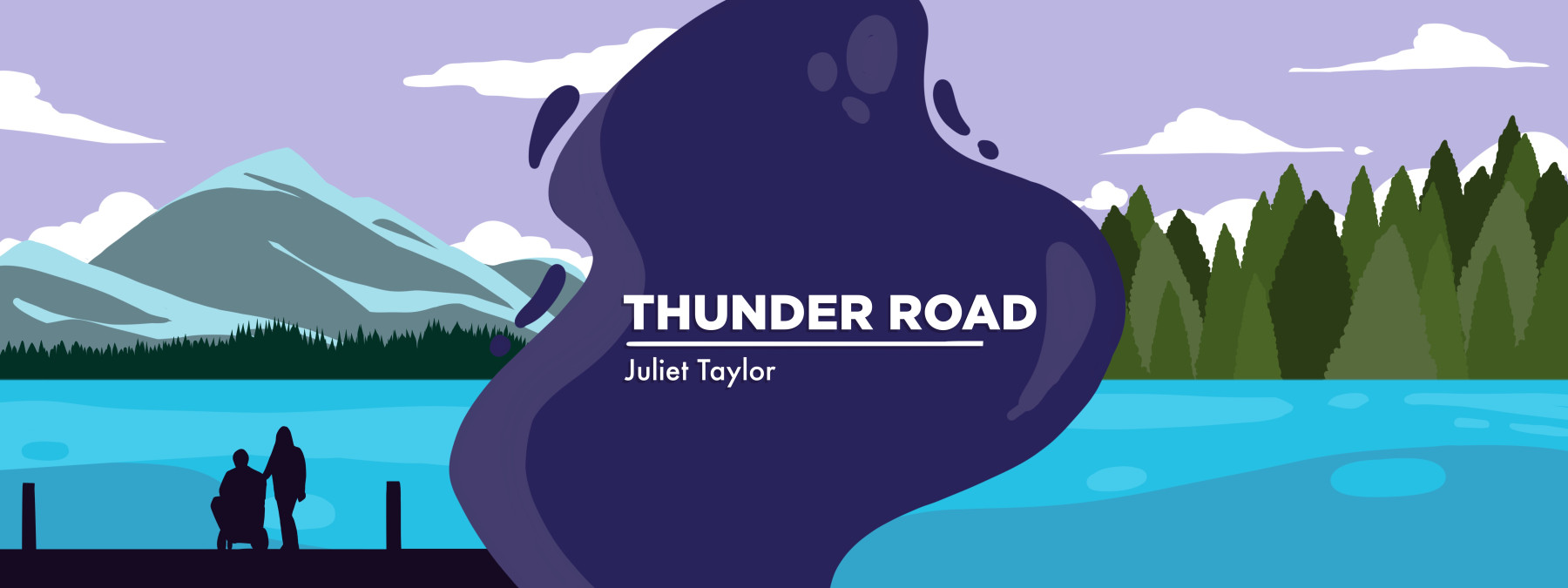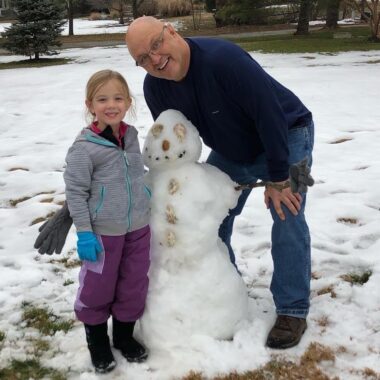How winter weather brings stress when living with ALS
Navigating ice and snow becomes more difficult as the disease progresses
Written by |

I have always been a summer person, relishing how everything in nature quietly comes to life — lush, green grass, abundant wildlife, and densely leafy trees. To me, summer evokes peace, calm, and lazier days.
My late husband, Jeff, on the other hand, was a winter person. As much as he enjoyed being outside in shorts and flip-flops on a hot July day, he came to life in winter. His enthusiasm for a belting snowstorm was childlike, and on days when we woke up to snow coating the yard, he was eager to get outside with our dogs. He’d race with them in the snow, watching them dance around while he built a snowman. I would reluctantly join him from the warmth of the house and my coffee, but always was glad when I did, if for no other reason than to observe his unabashed glee.
Jeff lived with ALS for two winters before he died from the disease in May 2020. The first winter, we chased fun. He was newly diagnosed and his symptoms were still relatively mild, so being outside was still easy. His case of ALS was limb-onset, with his feet and legs the first affected. We used an orthotic to steady his weakened right leg and sometimes a rollator for added support as he moved both inside and outside the house.
Falling, which can be fatal and is a frequent concern in ALS, seemed less of a risk that year, so we felt safe to head outside when snow blanketed our yard. I have beautiful memories of a snowman he built with one of our nieces during that first winter with ALS. At that time, his ultimately fast progression seemed slow, and while we were emotionally devastated by his new diagnosis, his physical limitations were minor. At the time, we felt like this would always be so.
The impact of bad weather
Our second winter living with Jeff’s ALS was a different story altogether. Jeff was, by October 2019, using a power wheelchair full time, and I remember what an impact weather of any sort — snowstorms, ice storms, thunderstorms, high winds — had on our planning for his comfort and safety.
By this time, we’d moved from our rambling, rented farmhouse on 2 acres to a mobility-friendly cottage with wide doors, no thresholds, and a large, wide driveway and garage. This latter feature made it possible for Jeff to move from the house to the mobility van without being exposed to the elements. It seemed like a perfect solution.
Snow, ice, and rain had other implications, though, once we left the house. Transferring out of the van and crossing the parking lot for medical appointments meant traversing through ice, and the wheels of his power chair sometimes struggled to grip. The chair itself was 425 pounds and couldn’t be manually pushed if we encountered a slushy patch. I remember walking behind Jeff as we traveled the snowy sidewalks, trying to balance my concern and desire to help with recognizing his need for independence and dignity.
If I could, in bad weather I’d drop Jeff at a covered spot and go park the van, but leaving him unattended for even a few minutes was scary — not for Jeff, who as a former law enforcement officer was always evaluating risk, but for me. I remember once dropping him at the disability entrance to the airport and asking him to wait a few minutes while I parked. When I returned, he was nowhere to be found. He’d gone inside the airport, somehow trailing our two carry-on bags, and was headed toward the gate without me. While that memory always makes me laugh, Jeff’s fierce independence was something I respected, understood, and had to account for when we left home, no matter the weather.

Jeff Sarnacki and one of his nieces build a snowman in Annapolis, Maryland, during Jeff’s first winter living with ALS, in January 2019. (Photo by Juliet Taylor)
Thunderstorms and wind created anxiety, too, for fear of losing power. We didn’t have a generator, and anyone living with more advanced stages of ALS will understand the dependence on electricity. We had literally dozens of pieces of medical equipment that needed to be charged, from life-support equipment like his BIPAP and cough-assist machines to mobility aids like his Hoyer lift and power chair. Without power, Jeff’s safety was deeply compromised.
In retrospect, we were fortunate during Jeff’s 19 months living with ALS that our fears — my fears — about weather never led to a fall, a loss of power, or a serious hardship for him.
With icy weather gripping much of North America this winter, my first thoughts are no longer of a pretty snowstorm or cozy days watching from inside with coffee. Weather can impact every part of an ALS family’s planning and psyche, creating anxiety and fear. We must plan ahead with extra care, and even then sometimes rely on luck, to ensure the safety of our loved ones and ourselves.
Note: ALS News Today is strictly a news and information website about the disease. It does not provide medical advice, diagnosis, or treatment. This content is not intended to be a substitute for professional medical advice, diagnosis, or treatment. Always seek the advice of your physician or other qualified health provider with any questions you may have regarding a medical condition. Never disregard professional medical advice or delay in seeking it because of something you have read on this website. The opinions expressed in this column are not those of ALS News Today or its parent company, Bionews, and are intended to spark discussion about issues pertaining to ALS.







Joyce
Thank you , Juliet for your encouraging words about your husband’s courage and steadfastness.
I am newly diagnosed and have huge concerns about my future, however, I am thankful for so many areas of support that is readily available. I know I am not alone!
Sami Maukonen
I have all but not yet, living with als is scary